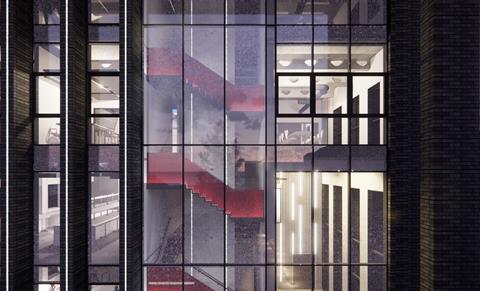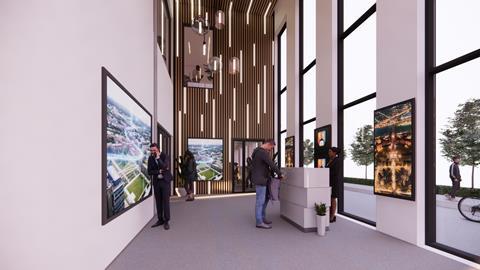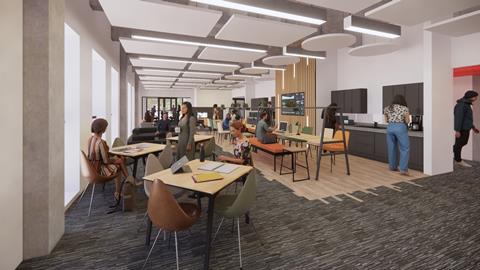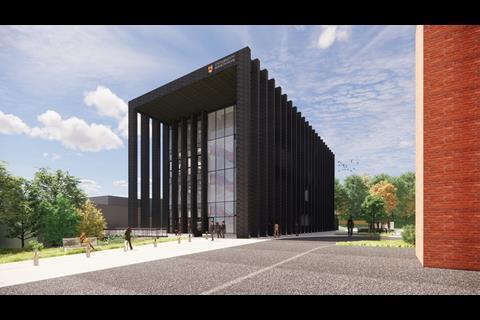Centre will host research labs and collaboration space for low-carbon innovation as part of £50m investment
Glancy Nicholls Architects has worked up proposals for a net-zero carbon “smart living laboratory” for the University of Birmingham that will be the centrepiece of a £50m investment programme.
The practice’s Birmingham Energy Institute building is earmarked for a site at the university’s Edgbaston main campus, south west of Birmingham city centre.
The university said it would contain state-of-the-art research laboratories and represent the “cornerstone” of the University’s vision for a living laboratory that transforms its main campus into a “national testbed” for innovation in low-carbon energy systems.
The building will bring together interdisciplinary energy research and education from across the university and its partners. It will also provide a base for collaborations with industry, combining digital sensor and analytics technologies across the Edgbaston and Dubai campuses.

Birmingham Energy Institute director Prof Martin Freer said energy research at the university had grown rapidly over the last decade with researchers leading developments in energy systems and storage, heating and cooling, materials irradiation, hydrogen fuel and future-vehicle technologies.
He said the plans for a new hub and the financial backing underpinning them represented a “truly ambitious step” towards a net zero-carbon society. We are working with local, regional, national and international partners to unlock the deployment of solutions that will accelerate the energy transition.”

Glancy Nicholls also designed the 1,800 sq m Birmingham Energy Innovation Centre Industry for the university at Tyseley Energy Park in east Birmingham.
It provides office accommodation, analytical laboratory space and workshops for academics and business to collaborate on new energy solutions.






























No comments yet